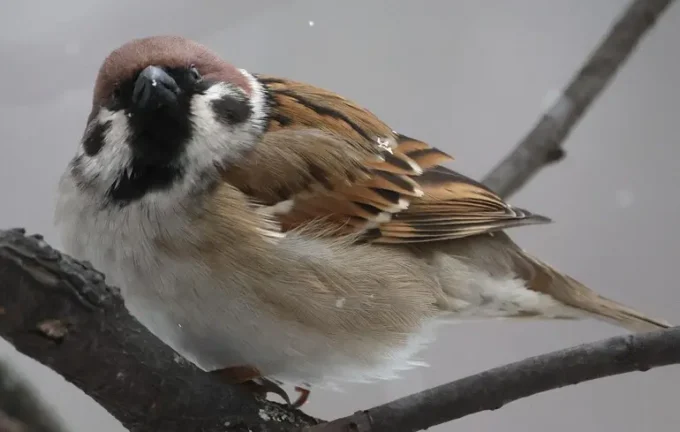The reduction of sparrow populations in Ukraine could lead to a surge in mosquito populations and create additional health problems for the population

This opinion was expressed by allergist Olena Bachinska during a live broadcast on the Kyiv24 TV channel, emphasizing the importance of ecological factors in shaping the situation around insects and birds. According to her, the decline in sparrows — one of the most common birds in the country — is primarily caused by the destruction of their natural habitat, in particular, the regular mowing of grass. This is one of the main reasons for their decreasing numbers, since for large groups of sparrows, grassy cover is a source of food, including seeds, insects, and other organic residues. Due to the widespread global trend of environmental degradation and human interference, the bird populations — which serve as natural regulators of insect numbers — are rapidly declining. This creates an immediate risk of increased mosquito populations, as birds actively help control their numbers in nature. The absence of birds allows mosquitoes to reproduce more quickly and colonize new areas, increasing the likelihood of the spread of various infectious diseases. The doctor also emphasized that human attractiveness to mosquitoes largely depends on physiological characteristics. In particular, it has been established that a deficiency in vitamin B1 (thiamine) can make people more appealing to insects. She noted that after beginning to take this vitamin, many patients report a decrease in the number of bites, which can be a useful recommendation during the seasonal activity period of mosquitoes. Olena Bachinska stressed the need for a serious attitude toward mosquito bites, as these insects are carriers of dangerous infections. She highlighted that especially dangerous are those that have survived the winter period — as they appear actively at the beginning of summer and pose a serious threat. According to her, if a person experiences prolonged inflammation or swelling lasting more than three days after a bite, it is necessary to see a doctor. Immediate treatment of the affected area with antiseptics is also an important preventive measure against complications. The medical professional called for not to underestimate mosquito bites and emphasized that it is better to be cautious than to deal later with complications such as inflammation or infections. She once again reminded that modern medicine can quickly help in case of complications, but it is important not to neglect simple preventive measures. In the context of global ecological problems, scientists have previously issued warnings about the possible extinction of nearly five hundred bird species in the coming decades. This phenomenon could significantly complicate natural control over pest insect populations and increase risks to ecosystems and human health. Thus, the decline in sparrow populations is not only an ecological problem but also a factor that directly affects public health, especially during the summer activity season of mosquitoes. Considering these nuances and actively implementing measures to preserve natural insect regulators is one of the essential components of modern ecological policy and civic responsibility.

